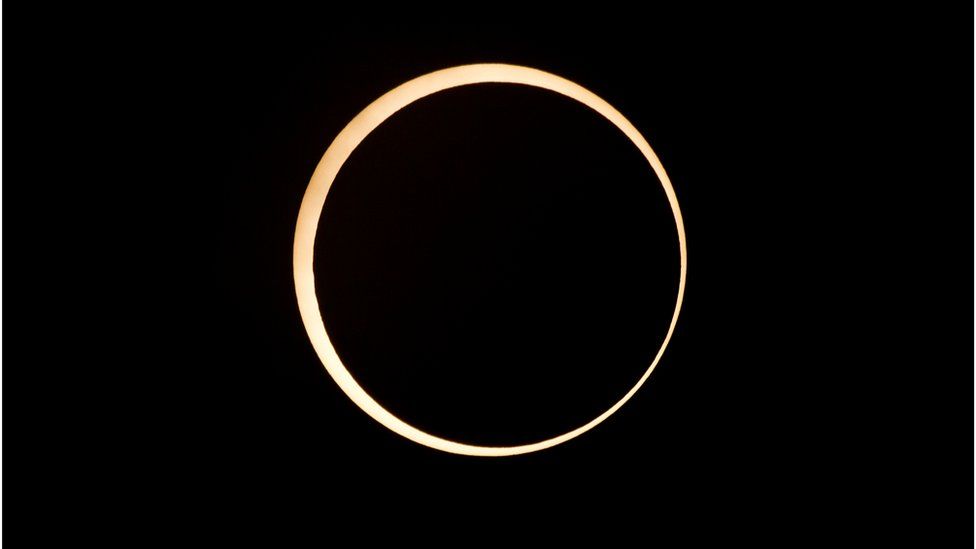-

-
-
Loading

Loading

On Saturday, there will be a breathtaking celestial event for stargazers and astronomers to enjoy—an annular solar eclipse. This cosmic phenomenon will be visible in certain parts of the United States, Mexico, and South and Central America. NASA assures that people across the US will be able to witness at least a partial eclipse. An annular solar eclipse occurs when the Moon moves between the Earth and the Sun, partially blocking out the Sun's light. The name "annular" comes from the thin ring, or annulus, of light that remains visible. This type of eclipse happens when the Moon is at its furthest point from Earth, allowing a stunning ring of fire to be seen around the Moon. Dr. Nicola Fox, associate administrator for NASA's Science Mission Directorate, explains that while total solar eclipses are more widely celebrated because the Corona can be observed, annular solar eclipses are actually rarer and therefore an incredibly cool sight to see. The path of the annular solar eclipse on October 14 will cover a wide area, offering different experiences depending on your location. Those in the path of annularity will witness the full ring of fire effect, while those in nearby regions will see a partial eclipse. The eclipse begins in Oregon at 09:13 local time and ends in Texas at 12:03 local time. To have a clear view of the eclipse, it is crucial to plan ahead and find a suitable viewing spot away from city lights and tall buildings. Many astronomy clubs and organizations arrange public viewing events, so it's worth checking with local enthusiasts for opportunities to safely observe the eclipse. Dr. Fox advises that, since sunlight isn't completely blocked out during an annular eclipse, eclipse glasses must be used regardless of location. It's essential to remember that looking directly at the Sun, even during an eclipse, can cause severe eye damage or blindness. To safely view the eclipse, it is recommended to use approved eclipse glasses or a pinhole projector. Using cameras, binoculars, or telescopes to view the bright Sun without a special-purpose solar filter can also result in severe eye injuries.